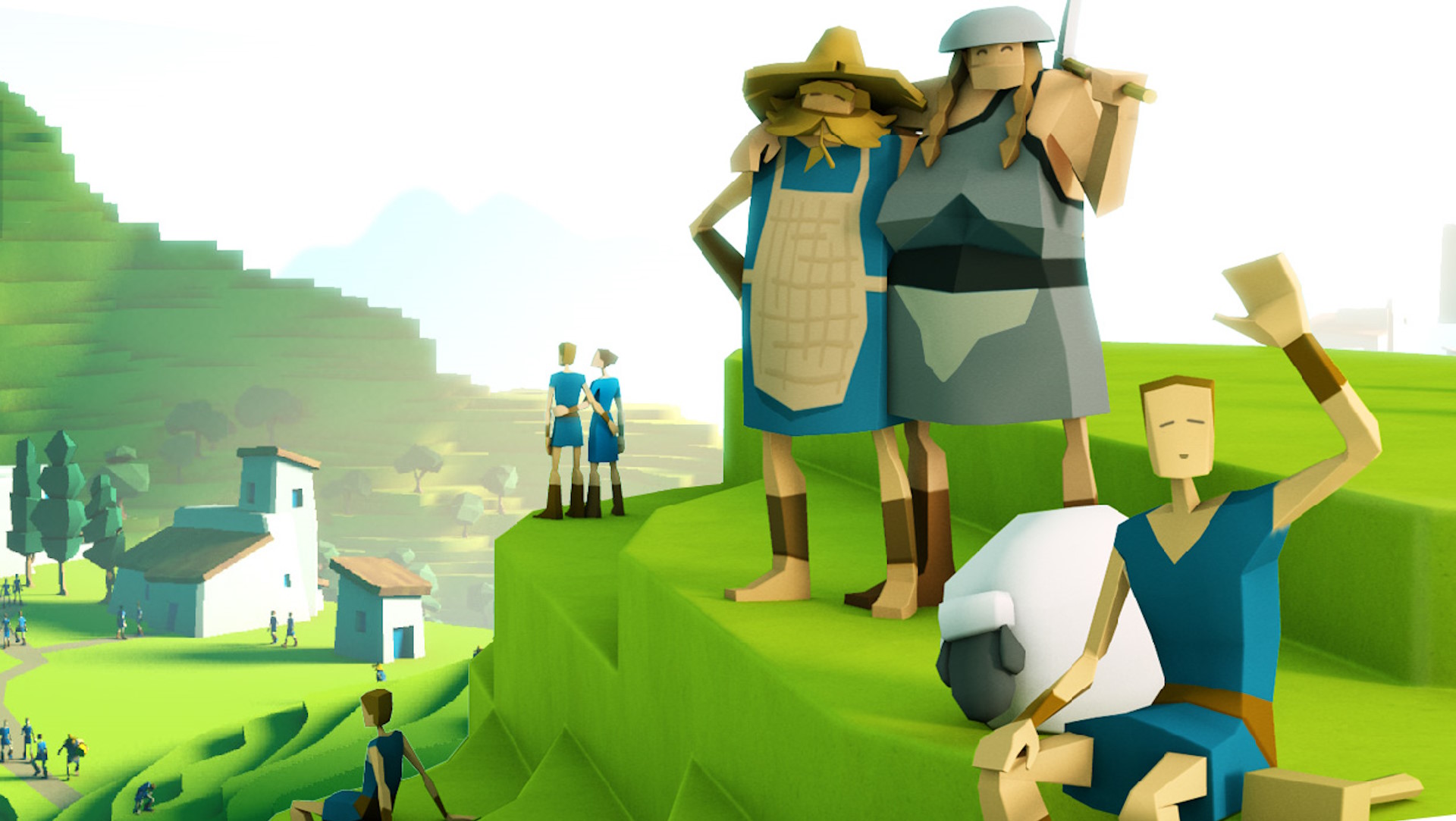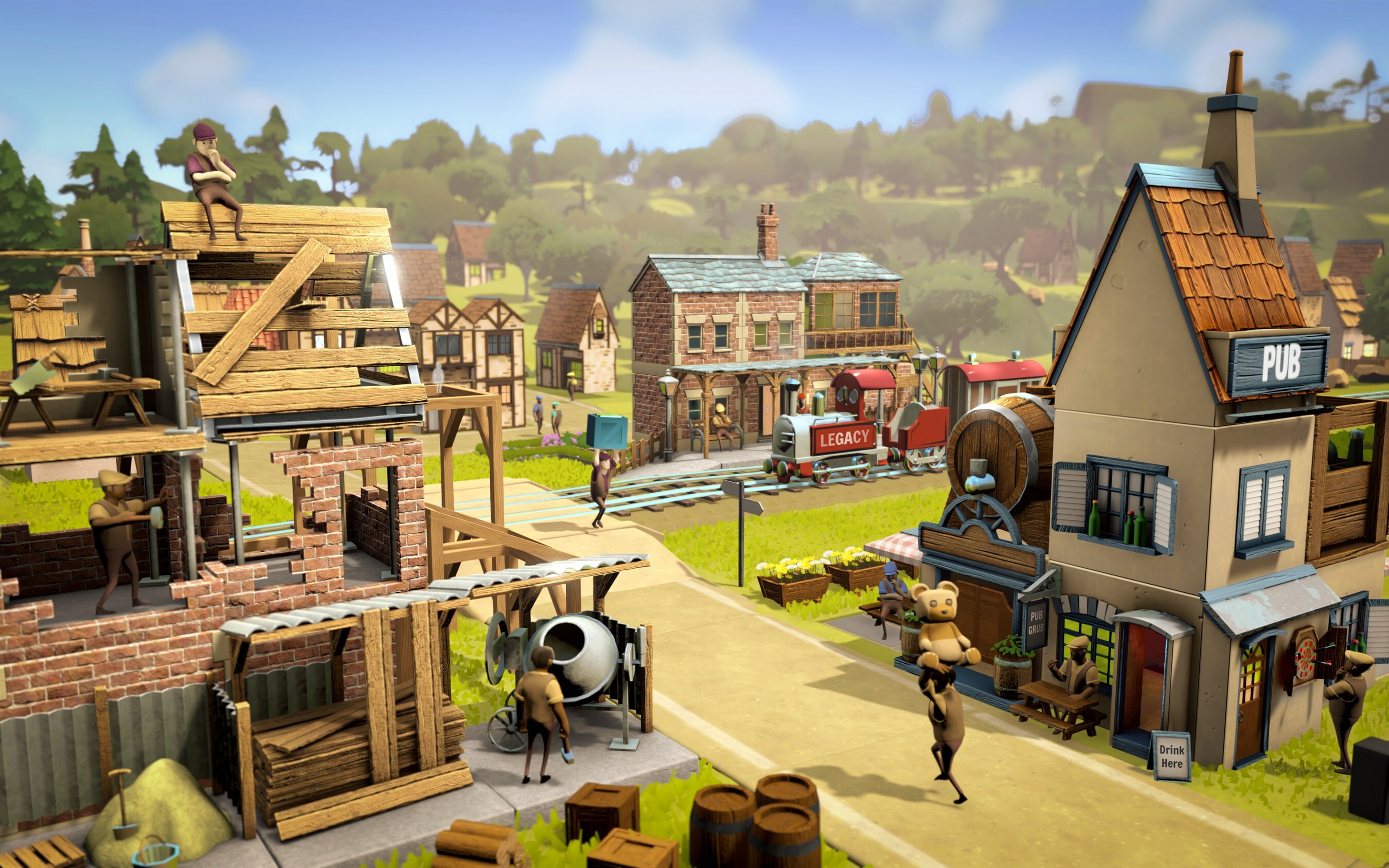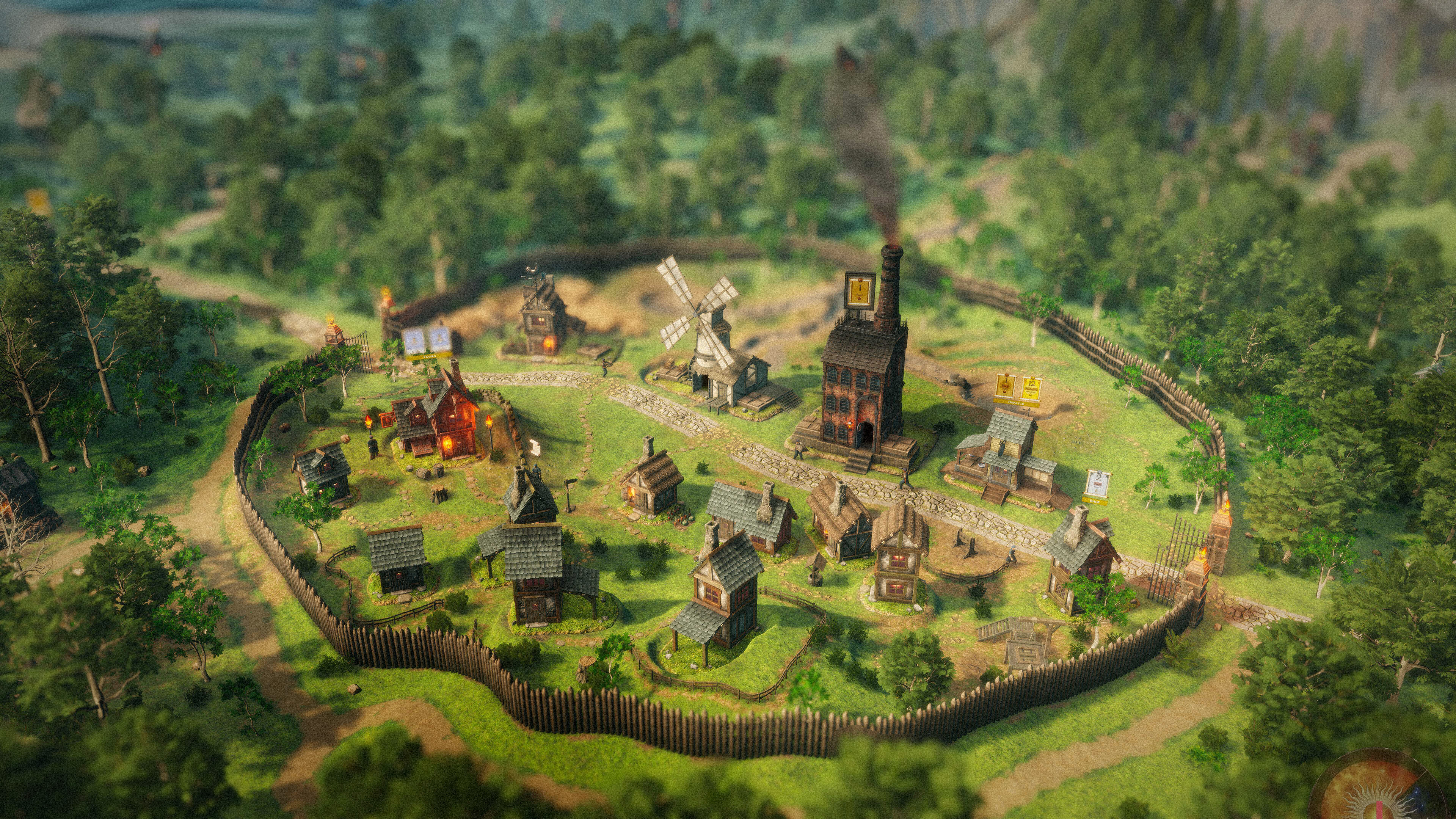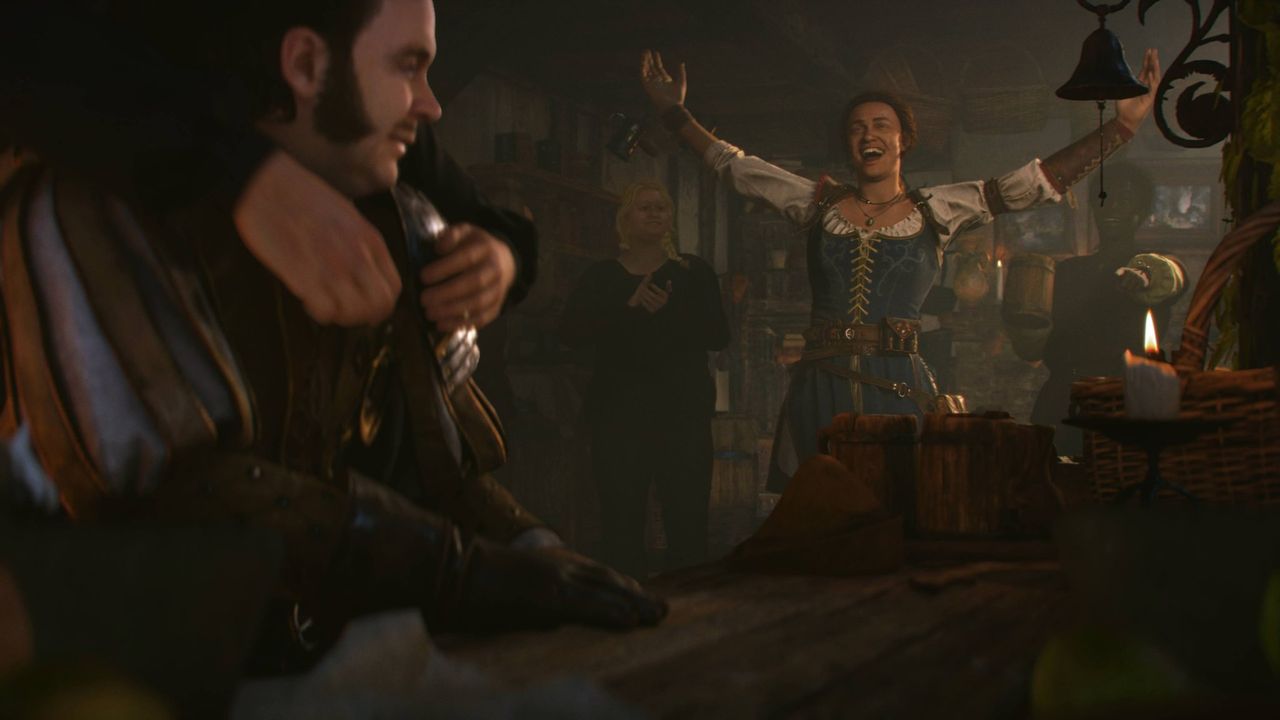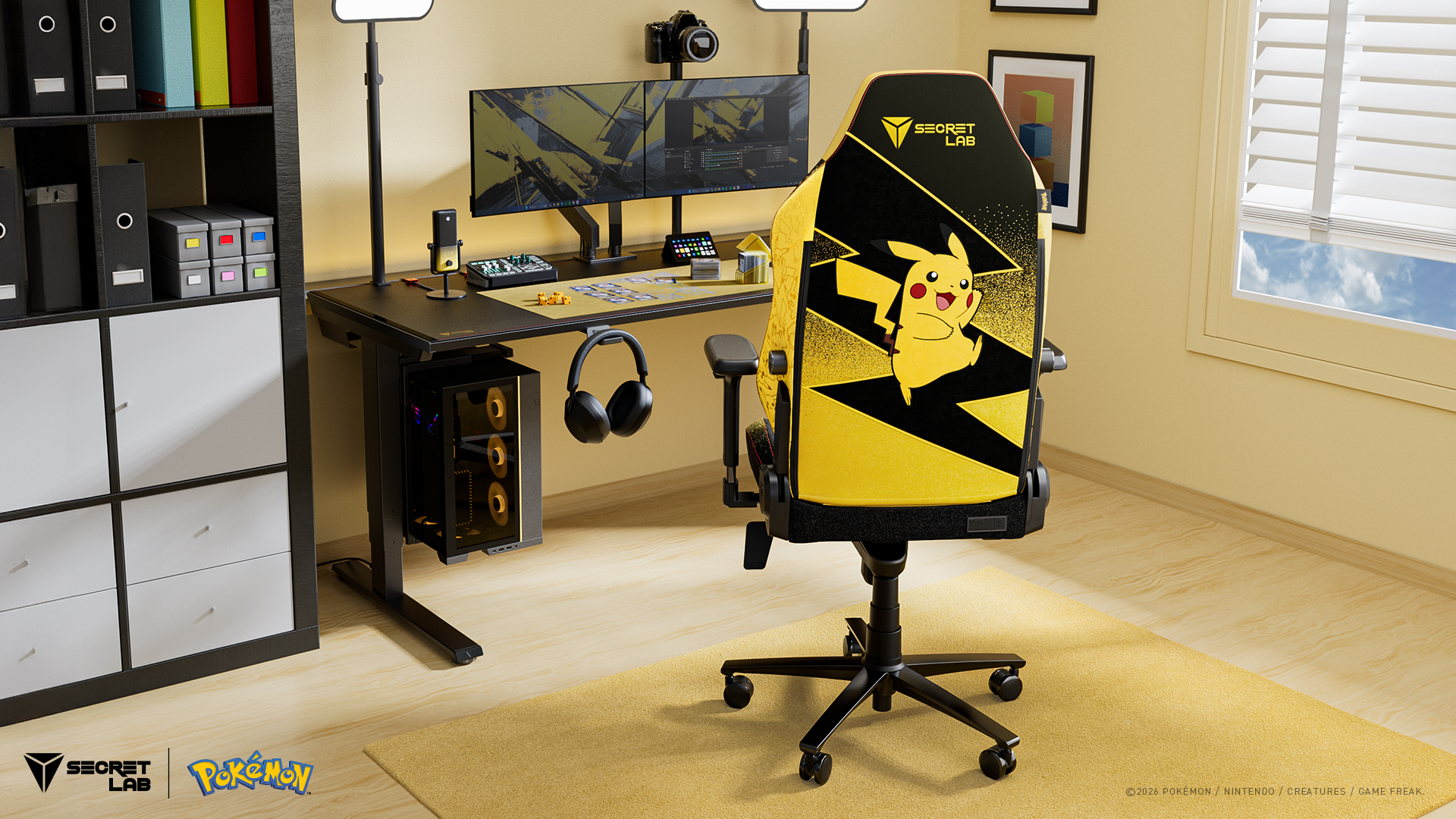Peter Molyneux says he’s ‘coming home’ to PC, but should we welcome him back after everything that’s happened?
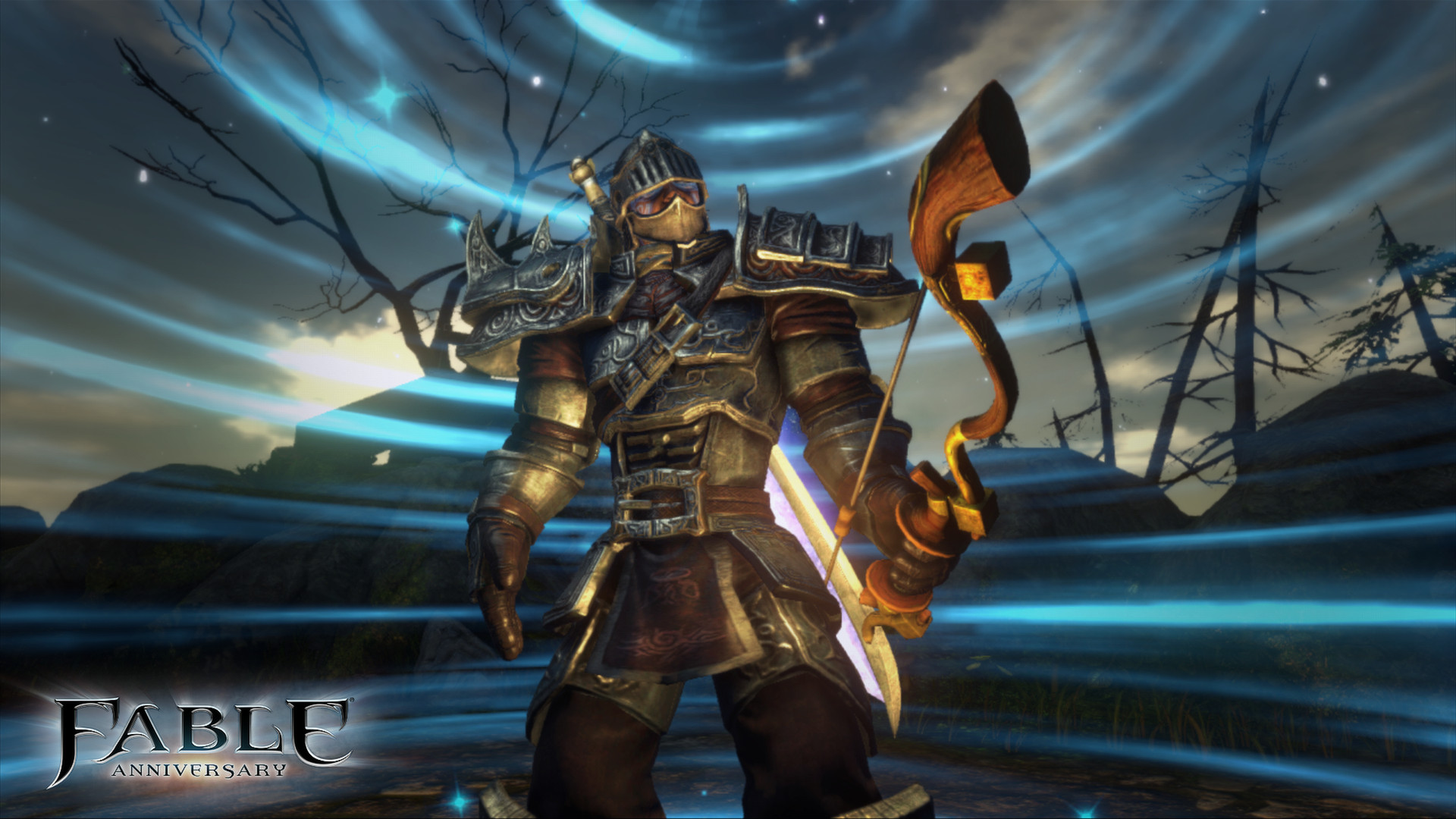
Peter Molyneux is at once known as a legendary game designer and as a legendary bullshitter. He’s credited with creating the “god game” genre with 1989’s Populous, and led the Fable RPGs of the 2000s. Many of his games were hits, and some are regarded as classics. His personal reputation hasn’t fared so well.
Earlier this week at Gamescom, Molyneux announced a new god game called Masters of Albion, and there are reasons to suspect it won’t be any good. The last game put out by his studio, 22cans, was a blockchain business sim that earned its money by selling “land NFTs.” And the biggest game the studio put out before that, crowdfunded god game Godus, isn’t even available for purchase on PC anymore.
Among the reactions to the announcement were pleas to snuff out any emergence of a Molyneux redemption story. He hasn’t really answered for failing to deliver everything the Godus Kickstarter backers paid for, and perhaps worse, he promised an 18-year-old kid godhood and gave him squat (more on that weird saga below).
The past decade of Molyneux’s career has been full of blunders, but while reading those takes I was thinking, alright, true, but Masters of Albion does look kind of fun. Maybe I’m just nostalgic for one of my favorite Molyneux games, Black & White, but I just love little grasping hand cursors you can use to fling your subjects around. Is it wrong to give Masters of Albion a chance, not to redeem Molyneux in the eyes of aggrieved Kickstarter backers, but just to be a fun game?
My automatic reaction was, nah, it’s fine, but that’s not the most satisfying answer, so to work out why I feel that way, I’ve examined the history of Molyneux’s career below, as briefly as I could manage (which is admittedly not very briefly). Given that I was a teenager when Black & White released in 2001, this might also be helpful for anyone who reacted to Molyneux’s ONL appearance with the question, “Who’s that?”
Acorns and oak trees
Following Molyneux’s success with ’90s sims like Populous, Theme Park, and Dungeon Keeper, he co-founded Lionhead and developed Black & White before moving onto the Fable RRG series. This isn’t where Molyneux’s habit of making wild promises began—a great 2014 Kotaku feature traces that behavior back to the start—but it’s here that I recall his reputation as a loose cannon pitchman really solidifying a subject of internet mockery and derision.
Among many other examples, the designer famously told press that, in Fable, players would be able to plant an acorn and witness it grow into an oak tree as years of in-game time passed. That wasn’t true, and the claim became one of the most repeated Molyneuxisms.
Molyneux caught heat for these verbal wanderings—he was called a liar and a scammer on forums—but people also loved Black & White and Fable. They were popular games and critical hits. And some of Molyneux’s lofty remarks were genuinely ahead of the curve. In the same year that Halo 3 and Call of Duty 4: Modern Warfare were the best-selling Xbox 360 games, Molyneux was hyping up Fable 2 by talking about love, sex, and companionship.
For the people I was around at the time, Molyneux was seen as endearingly over-excited about his own ideas, an incorrigible scamp whose words you couldn’t take too seriously. After he left Lionhead in 2012 and founded a new independent studio, 22cans, however, Molyneux’s relationship with the press and public dramatically declined.
Curiosity: Molyneux’s weird cube
Molyneux took his hype-building skills to another level at 22cans. The company’s first game, Curiosity, was a mobile app that contained a cube made of billions of smaller cubes. Players, working collectively, tapped on the small cubes to destroy them, slowly revealing the layers below. We were told that whoever reached the center of the cube first would win a “life-changing” prize, and Molyneux framed Curiosity’s microtransactions, which allowed players to buy cube-smashing tools, as just a part of the social experiment.
“This is not a money-making exercise, it is a test about the psychology of monetization,” he said at the time.
Did we buy it? As I recall, the whole thing was regarded as weird, novel, and more or less ridiculous—classic Molyneux—but we did want to know what was in the cube. How could we not? Molyneux’s reputation for overpromising meant that if the prize really sucked, he was going to be absolutely lambasted for getting us worked up about it. And if the prize really was amazing, we obviously wanted to know what Willy Wonka had in store.
If you weren’t following it at the time, you can probably guess how it turned out. When an 18-year-old kid named Bryan Henderson clicked the final cube in 2013, it quickly became apparent that there was no “life-changing” prize, except in the technical sense that his life was briefly, mildly disrupted.
Godus: The Kickstarted god game
The cube’s treasure was a special “God of Gods” multiplayer role in 22cans’ first proper game, a Kickstarter-funded successor to Populous called Godus, as well as a percentage of the game’s revenue. That would’ve been an incredible prize if Godus had been the next World of Warcraft, and Henderson was about to rule over millions of players while earning enough passive income to fund any lifestyle he wanted. It even would’ve been a pretty cool prize if Godus had been a modest success. But on PC, it was a dud, and the multiplayer features that would’ve made Henderson an in-game god were never even finished.
In a 2015 interview with Eurogamer, Henderson said that 22cans invited him to their office once, and then ignored him. Molyneux apologized at the time for the lack of communication, and insisted that they were still working on those Godus multiplayer features, even though by that point they’d announced another game.
Last year, Godus was removed from sale on Steam. Henderson never got his prize. The Kickstarter backers didn’t get all the rewards promised by the campaign. A free-to-play mobile version of Godus made with the involvement of an external publisher, despite the point of the Kickstarter being “no publishers,” continues to receive updates. Molyneux said this week that the mobile game is “amazingly popular,” but it isn’t a replacement for the completed PC game backers wanted.
In an infamous 2015 Rock Paper Shotgun interview in which he was asked if he’s “a pathological liar,” Molyneux said that he had never knowingly lied. He said he’d had to change course and make sacrifices out of necessity, because making something new is unpredictable and hard: “Making a computer game that’s entertaining and that’s incredible and that’s amazing is almost impossible, it’s almost impossible to do.”
It’s not an unfamiliar story—lots of Kickstarted games have been delayed, gone over budget, and underdelivered, and the notion that ‘game development is hard’ is repeated constantly—but at that point, Molyneux was out of goodwill to turn in for forgiveness.
Also, there was that NFT game
For his next big move, Molyneux and 22cans teamed up with blockchain company Gala Games to launch a Web3 game called Legacy. If everyone’s already mad at you, what’s the harm in a little NFT game, right?
Legacy is a business sim that, at the height of NFT fever in 2021, started selling “Land NFTs” to speculators eager to get in on the Web3 gaming revolution that they kept saying was happening, and that was clearly not.
In this week’s interview with Eurogamer, Molyneux admitted that he never fully understood the “play-to-earn” economic model (me either!) and has since decided that it “doesn’t really work financially, or in gameplay terms.” He said that he’d become disillusioned with the free-to-play model, and that Gala Games sold him on the idea that blockchain would be the next big thing.
The people who bought those NFTs did not get rich, but for Molyneux and 22cans, it doesn’t look like the project was a financial mistake. Molyneux says they didn’t make $54 million off the game like some reported, but did make enough to fund Masters of Albion, the new god game Molyneux announced on stage with Geoff Keighley at Opening Night Live this week.
And now: Masters of Albion

Watch On
So that’s the score: a Kickstarter project that didn’t fully materialize, a winner who’s still owed godhood, a new game being funded by the poor investment choices of Web3’s true believers, and Molyneux continuing to be Molyneux.
After failing to deliver a complete PC version of Godus, it was certainly artless for Molyneux to get on stage this week and wonder aloud what the hell he’d been doing “messing around on mobile.” Your backers were asking the same question!
It’s also easy to be suspicious of Masters of Albion, which looks remarkably similar to the NFT game that funded it. Molyneux knows he has to overcome his reputation here: “It’s got to go into early access and be really fucking amazing,” he told Eurogamer.
If Molyneux were a serial crowdfunder who repeatedly failed to complete projects, I’d probably roll my eyes and leave it there. But he isn’t. Godus is the only project 22cans has crowdfunded, and drawing a direct line between it and those old Fable interviews misrepresents how people actually felt about the Fable games. They were popular and praised by critics, not crappy RPGs sold entirely on false promises.
If anything, the infamous Fable interviews make it more believable that Molyneux genuinely felt that 22cans could do what he said it could with Godus. A guy known for falling in love with cool ideas that he can’t deliver on is really not who you want with the keys to a Kickstarter page, and it doesn’t look like the studio plans to repeat that irresponsible mistake.
It’s disappointing that there’s no comment from Molyneux this week on what he’s going to do, if anything, to make good with disappointed backers. I’ve asked the studio for an interview, and haven’t heard back.
But 22cans is hardly the only developer to have ever botched a crowdfunding campaign, and we’re in no danger of somehow being tricked here. Either the new game will be good or it won’t. We know who Molyneux is at this point. He’s messy. I don’t recommend backing the Kickstarter projects of messy people, but sometimes they do make cool games with their friends.
“Sometimes he’ll shoot for the stars when he tries to instill ambition in his team,” said Gary Carr, who worked with Molyneux for 20 years, in that 2014 Kotaku feature. “And if it doesn’t always work, it can be taunted back at him. But I still remember those people who he dragged out of the gutters to some extent and made them into great developers. So I tend to have a much more balanced view of that. It’s something he can’t switch off. He’s ambitious, he sells dreams, he sells people to themselves. So therefore if it works, it’s great, if it doesn’t always work, then I think that’s just the chance you take.”


